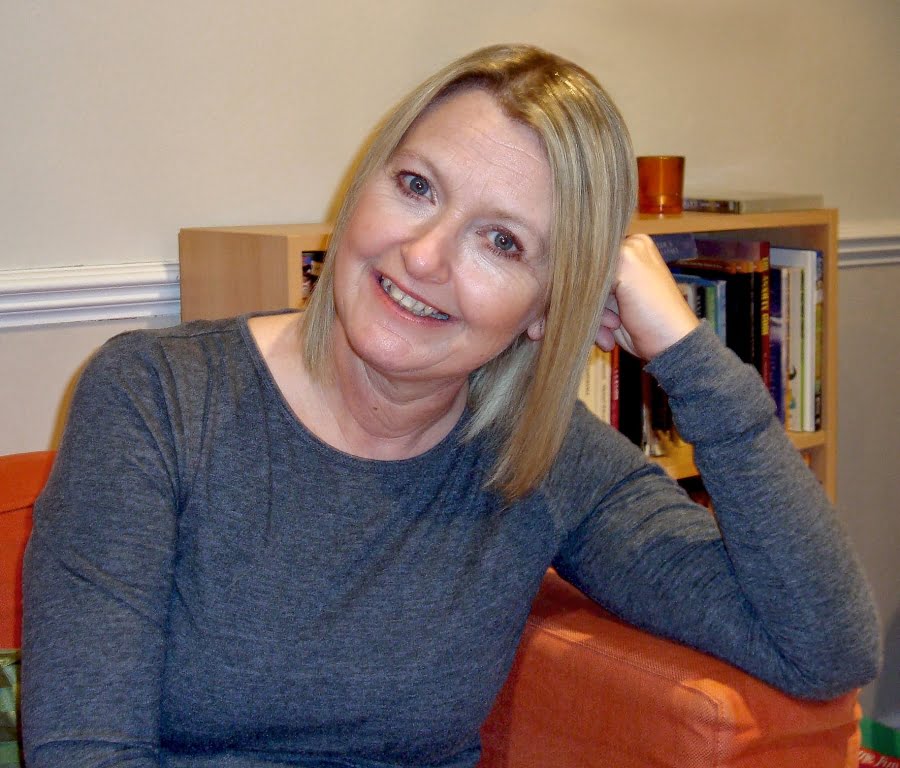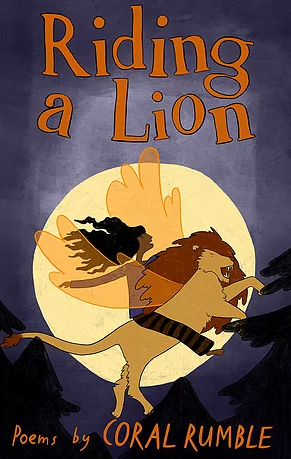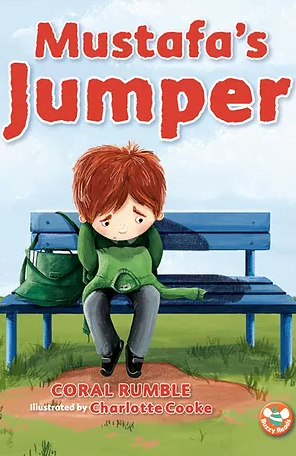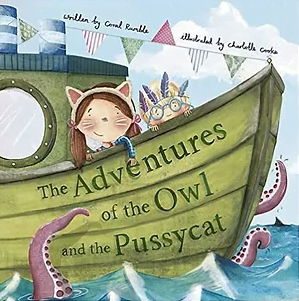Today we are thrilled to welcome Coral Rumble into The Reading Realm to talk about her magical, beautiful new book Riding a Lion…

Without giving too much away, can you tell us about your new anthology of poems, Riding a Lion?
The collection offers poems on a host of subjects. I wanted to simply present poems that I’m glad to have written, rather than being tied to one theme, although I did theme poems after the poems had been chosen. I rarely think in a straight line, so I suppose Riding a Lion is representative of that!
What I particularly liked was that the anthology is broken up into themed sections, which is great for helping a reader navigate and find poems. How do you go about sorting and organising so many poems?
The themed sections are an attempt to help the reader find the various paths to walk in the collection. As I’ve said, I didn’t write poems with the themes in mind, the poems were already written. I tried to find the patterns in my thinking, so I could place each poem close to another that showed connection. The 6 sections kind of revealed themselves to me, so I’ve just passed them on to the reader.

One of the poems that really stood out for me was ‘Beyond Ariel’ – it’s a beautiful and sad glimpse into what happens after the happy fairy tale endings we all know. What inspired this poem?
I think many children enjoy being playfully subversive; it’s not an ‘Adults Only’ realm! They also seem to like playing with ‘what if’ outcomes. Alongside ‘Beyond Ariel’ are other poems that also twist fairy tale outcomes. On a serious note, the poem calls into question the truth of fairy tale endings. We don’t have to protect children from this reality; children regularly experience disappointment, so it’s good to use an imagined scenario as an avenue for discussion of the real. Children understand that life reaches beyond Ariel’s Disney experience.
There are also lots of hilarious, witty poems in the anthology like ‘Yak in the Attic’ and ‘house Guest’. How difficult are these to write? They flow and bounce brilliantly as you read them aloud, but I know that’s very difficult to achieve!
I spend much time explaining to children that rhyme can work against intention in a poem, but regular rhythm and rhyme are the friends of a humorous poem. That doesn’t mean all funny poems have to employ those techniques to succeed, many don’t, but a regular beat and agreeable sounds play a huge part in this form. A meter that skips, alongside a regular rhyme scheme, can add to the light-hearted intention of a poem.
Humorous poems are not inferior to those tackling weightier subjects, as some think. Such poems have to be finely tuned and skilful, and the poet has to be strict with every syllable. It’s always a challenge!

I found myself bathed in warmth and feeling very relaxed as I read ‘Bedtime, Cefalu Beach, Sicily’. Do you often write when you’re on holiday or out and about?
I don’t often complete poems when I’m out and about, but that is where many of my poems begin. I’m a jotter on the move – using the notes page on my phone. I once dictated a few lines to my husband, when I was driving. He’s very long-suffering!
What three top tips would you give to young poets?
My top tips are: –
Read the work of established poets. Get a sense of how they write and why their poems are memorable.
A bad poem is better than no poem! By this I mean that you must keep writing and experimenting, even if you’re not happy with the last poem you wrote. The fact that you’re not happy with it shows that you are aiming high, and understand that words can do amazing things.
Keep your poems, even the bad ones, together in the same place, so you can revisit them. Some will be worthy of editing, others will show you how much you’ve improved!

Are there any other children’s poetry books you’re looking forward to this year or have already enjoyed reading?
Oh, so many! A huge number of single poet collections and anthologies have been published in this strange, lockdown year. I’m always scared to list these things, in case I miss a book out!
These are the new poetry books I’ve read and enjoyed this year: –
This Rock, That Rock – Dom Conlon
Little Lemur Laughing – Joshua Seigal
If I were Other than Myself – Sue Hardy-Dawson
The Magic of Mums – Justin Coe
Bright Bursts of Colour – Matt Goodfellow
Verse Novels: –
The Weight of Water – Sarah Crossan
Toffee – Sarah Crossan
Moonrise – Sarah Crossan
Rebound – Kwame Alexander
Cloud Busting – Malorie Blackman
Next on my reading list are: –
The Book of Not Entirely Useful Advice – A F Harrold
Belonging Street – Mandy Coe
Painting Poems – Julie Anna Douglas
There’s a Crocodile in the House – Paul Cookson
Saturdays in the Imaginarium – Shauna Darling Robertson
Finally, can you describe Riding a Lion in three words?
Poems with bite.

